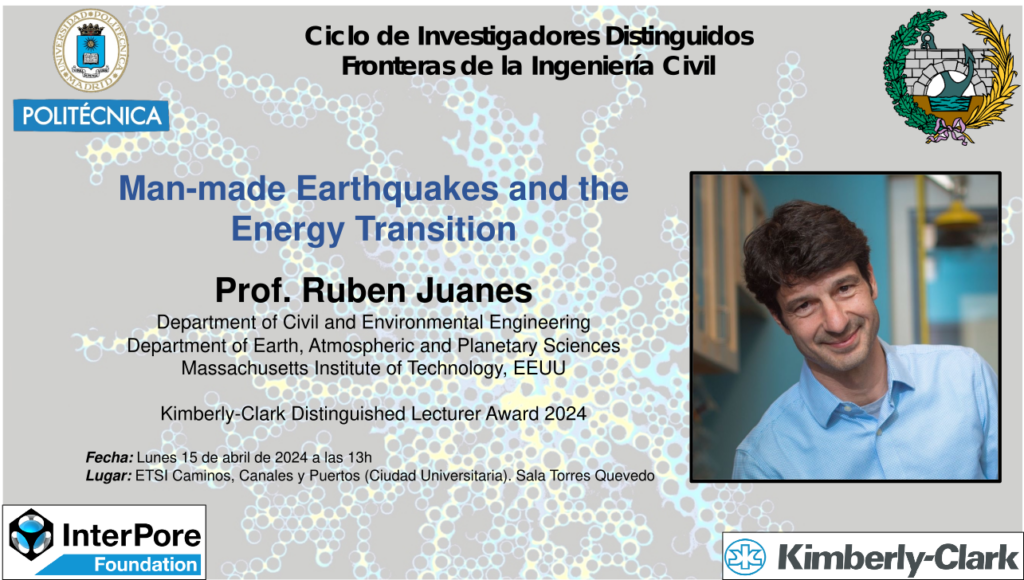
Professor Ruben Juanes from MIT will deliver the Kimberly-Clark Distinguished Lecture “Man-made Earthquakes and the Energy Transtion” at the ETSI Caminos, Canales y Puertos (Ciudad Universitaria), Technical University of Madrid, next April 15th at 13h in the Sala Torres Quevedo. Entry is free. No previous registration is required.
Man-made Earthquakes and the Energy Transtion
Abstract.
While the most devastating earthquakes are of tectonic origin, human activities have been associated with the triggering of earthquakes that have caused substantial economic damage and societal concern. Critical gaps remain in our ability to understand and, more importantly, mitigate, the occurrence of induced earthquakes. This lecture will discuss some of Prof. Juanes work employing contrasting approaches to help fill these gaps : from minimal-ingredients spring-slider models that account for poroelasticity to sophisticated multiphysics computational models that integrate disparate datasets and have succeeded at setting management strategies that prevent earthquakes while allowing subsurface operations in a tectonically active field.
Short bio.
Prof. Ruben Juanes is a Professor at the Massachusetts Institute of Technology, both in the Department of Civil and Environmental Engineering and in the Department of Earth, Atmospheric and Planetary Sciences. He has an outstanding track record of achievements and contributions to the field of porous media research, by his commitment to excellence in education and mentoring and by his exceptional skills as lecturer and communicator. Ruben Juanes is a world-renowned expert in the field of multiphase flow in porous media. His research aims at advancing fundamental understanding and predictive capabilities of the simultaneous flow of two or more fluids through rocks, soils, and other porous materials. It combines theory, simulation, and experiments, to elucidate fundamental aspects of multiphase flow. His contributions provide fundamental understanding of natural phenomena and have the potential to radically advance the deployment of energy systems, which depend critically on multiphase flow processes.